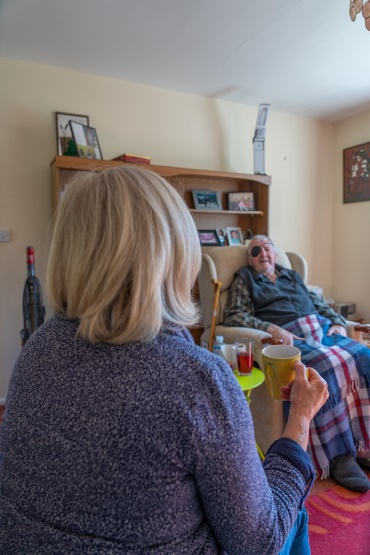Loneliness and mental health have always been intertwined issues and this will continue to be the case in the future. Whilst loneliness is not a mental health condition in and of itself, it can (and does) often lead to mental health problems. These can include various types of social phobia, depression, anxiety, low self-esteem, sleep problems and increased stress. (‘About Loneliness’- Mind website). Equally, mental health problems of varying types and levels can often lead to significant experiences of loneliness and so the two issues can exacerbate each other.
In July 2020, the Campaign to End Loneliness published a report called ‘The Psychology of Loneliness’ and this explored the relationship between mental health and loneliness and made a number of recommendations as to how individuals and agencies could address this growing problem. These included:
- increasing understanding about the effects of loneliness
- groups addressing loneliness exploring ways to incorporate the effects on mental health and psychology
- offering more one to one opportunities for those with complex needs
Impact of Covid-19
These issues were already being discussed prior to Covid-19 in terms of an ‘epidemic’ and since March 2021 there is evidence that the numbers of people experiencing mental health problems and loneliness has increased and has affected people of all ages, backgrounds and geographical area regardless of levels of affluence or deprivation. The ONS found that ‘up to a million more people became chronically lonely as lockdown continued – increasing the total to 3.7 million adults by the beginning of 2021. (‘Loneliness beyond Covid-19’ – Campaign to End Loneliness, July 2021) Similarly, churches also expressed similar concerns and over 90% of [church leaders] said that loneliness/isolation and mental health were affecting people “a little more” or “much more” than before the pandemic.’ (Church in Action: A Survey of Churches’ Community Responses to the Pandemic’ – Church Urban Fund & Church of England, April 2021)
How can we all respond to loneliness & mental health?
We all have a role to play in responding to these issues and these fit into two categories:
Despite lockdown measures now being removed, bereavement and other implications are still being felt by many people and are unlikely to be resolved for many months or years.
- Individual action – We all have opportunities in our day to day lives to engage with those around us and demonstrate care, love and compassion. Psalm 68 says ‘A Father to the fatherless is God in His holy dwelling. God sets the lonely in families.’ By remaining aware and responding to the needs of those on our doorstep, we are expressing God’s love directly in ways that we may never appreciate.


- Organisational action – Many organisations and community groups have been addressing issues around mental health and loneliness either implicitly or explicitly for many decades. In recent years, however, there have been many initiatives set up at a community level which specifically aim to address this, including support groups, counselling services, community activities and events, befriending/ mentoring services. These activities need to continue to develop and grow which means investment of time, finances and people including within churches and faith groups.
Exciting developments in Scotland!
Linking Lives UK is a national Christian charity working to address loneliness and social isolation in partnership with churches. We are now focusing on the need to provide a wide variety of resources that can be used to address loneliness and mental health in local communities. In some instances, this will be by creating a local befriending scheme (using our Two’s Company Befriending model). We currently work with 65 churches running such schemes including five in Scotland. We also run webinars and training outlining ways in which all of us can informally support those around us by becoming more aware of these issues in our communities.
We have recently secured three-year funding to enable us to further develop this work specifically in Scotland and we plan to employ a National Development Manager for Scotland. This role will involve researching needs and opportunities for the work and to build networks across the country.
If you would like to know more about these plans or ways in which you can respond to loneliness and social isolation in your local area, please contact us at admin@linkinglives.uk or 0300 302 0225
Jeremy Sharpe
National Director, Linking Lives UK


